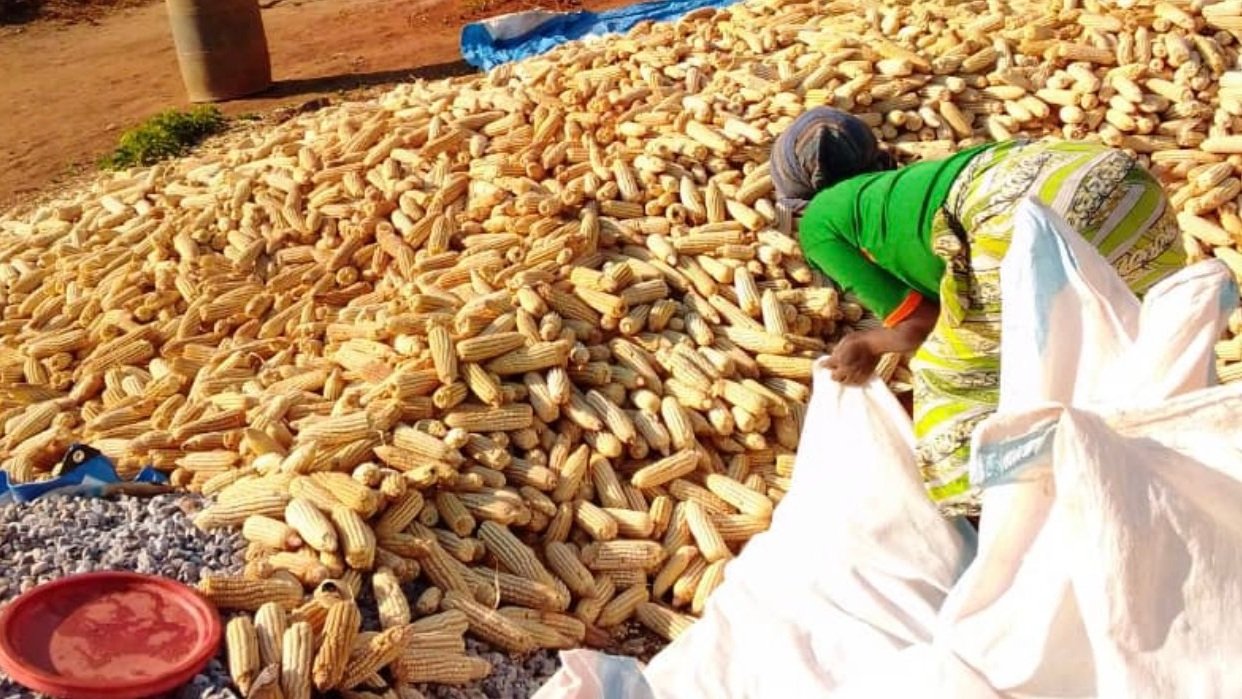
Sustainability Initiatives
-

Women’s Sustainability Initiatives
ZAMBIA
“With the right tools at hand, a woman is capable to do anything in life.” — Mwanandeka Kindembo.
Empowering African Women through the Women's Sustainability Initiative
In July 2021, Our founders and local partners in Zambia launched the Women's Sustainability Initiative pilot program to help African women achieve self-sufficiency and self-sustainability by starting their gardens. The program provided essential equipment, seeds, fertilizer, manure, and chemicals to help women grow crops, including pumpkin leaves, tomatoes, kale, onion, spinach, okra, and corn, on a 10-acre plot. Through this program, women could take control of their livelihoods and contribute to the broader economic growth of their communities. Participants gained knowledge and skills in agriculture, created jobs, supported sustainable agricultural practices, and generated income.
The initial program's success inspired OGD to extend its commitment to empowering women across different churches and communities in several countries. In addition to women’s conferences to encourage women and leaders.
The mission is to reach as many women as possible to empower them and meet their needs. With this goal in mind, OGD aims to expand its initiatives by providing women with the resources to become entrepreneurs. They will use their talents to uplift their families and communities and replicate the program in different areas, as well as expand it to other countries.
-

Fish Pond
ZAMBIA
Empowering Students and Communities through our Unique Fish Farming Project in Zambia
Our agricultural project in Zambia is centered around an innovative fish farm on school grounds. Our goal is to provide a sustainable source of fish for the local community while educating students on the benefits of aquaculture. The fishpond contains bream fish and is designed to ensure controlled and sustainable growth.
In addition to providing a sustainable source of fish, our project serves as an educational resource for students. By engaging with the farm, students can learn about various topics related to fish farming, including water quality, fish feed, breeding, and harvesting. We are committed to promoting the importance of sustainable fishing practices while raising awareness of the benefits of aquaculture.
Our fish farm aligns with several sustainable development goals, including SDG 14 (life below water) and SDG 4 (quality education). By promoting sustainable fishing practices, we are helping to protect marine life and preserve aquatic ecosystems. Additionally, our fish farm provides a sustainable source of protein to the local community, reducing the reliance on unsustainable fishing practices. Through our educational program, we empower future generations to actively protect our oceans and aquatic ecosystems while promoting quality education.
-

Kids for Kids Uganda
This innovative initiative aims to provide sustainable nutrition and economic stability for the children in our care. We do this by integrating community-based support networks and modern agricultural practices to empower the orphanage to become more self-sufficient and resilient. We aim to enhance food security, boost economic stability, and promote sustainable agriculture through goat farming.
We aim to provide 500 young goats to the orphanage. Goats are well-suited for small-scale farming in Uganda due to their resilience and adaptability. The goat milk is rich in protein and essential nutrients, significantly improving the children's diet and overall health. A mature goat can be sold for between $80 and $100, providing a steady income stream for the children. This income helps reduce reliance on external aid and supports other essential programs. We plan to offer comprehensive training for staff and older children on goat farming techniques and sustainable agriculture to ensure they have the skills to maintain and grow the project. Our project encourages local cooperatives where resources and knowledge are shared, strengthening community ties and providing the initiative's sustainability.
This initiative aligns with the UN Sustainable Development Goals (SDGs). Our Goat Farming Project supports several UN SDGs:
No Poverty (SDG 1): We help alleviate poverty at the orphanage by generating income through goat farming.
Zero Hunger (SDG 2): Providing nutritious goat milk addresses food security and reduces child malnutrition.
Quality Education (SDG 4): Through training programs, we equip staff and older children with valuable agricultural skills that improve their education and future opportunities.
Join us in making a lasting impact on the lives of our local children. Your support can help transform this initiative into a model of sustainable development and community resilience. We can build a brighter future for these children, one goat at a time.
